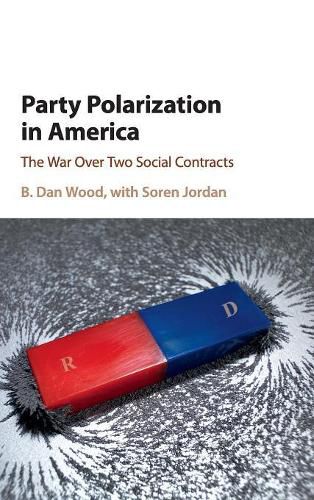Readings Newsletter
Become a Readings Member to make your shopping experience even easier.
Sign in or sign up for free!
You’re not far away from qualifying for FREE standard shipping within Australia
You’ve qualified for FREE standard shipping within Australia
The cart is loading…






This book develops a general explanation for party polarization in America from both historical and contemporary perspectives. Prior polarization studies focused exclusively on the modern era, but this work traces party polarization from the constitutional convention of 1787 to the present. Using such a broad historical perspective shows that what was unusual in American history was the period of low polarization from the Great Depression through 1980, rather than the period of high polarization of the modern era. Polarization is the norm of the American system, not the exception, and is likely to persist in the future. More theoretically, party polarization in America has been due to class-based conflict and rent-seeking by the patrician and plebian classes in various historical eras, rather than conflict over cultural values. As in earlier historical eras, modern party polarization has largely been elite-driven, with party entrepreneurs cunningly and strategically using polarization to their advantage.
$9.00 standard shipping within Australia
FREE standard shipping within Australia for orders over $100.00
Express & International shipping calculated at checkout
This book develops a general explanation for party polarization in America from both historical and contemporary perspectives. Prior polarization studies focused exclusively on the modern era, but this work traces party polarization from the constitutional convention of 1787 to the present. Using such a broad historical perspective shows that what was unusual in American history was the period of low polarization from the Great Depression through 1980, rather than the period of high polarization of the modern era. Polarization is the norm of the American system, not the exception, and is likely to persist in the future. More theoretically, party polarization in America has been due to class-based conflict and rent-seeking by the patrician and plebian classes in various historical eras, rather than conflict over cultural values. As in earlier historical eras, modern party polarization has largely been elite-driven, with party entrepreneurs cunningly and strategically using polarization to their advantage.